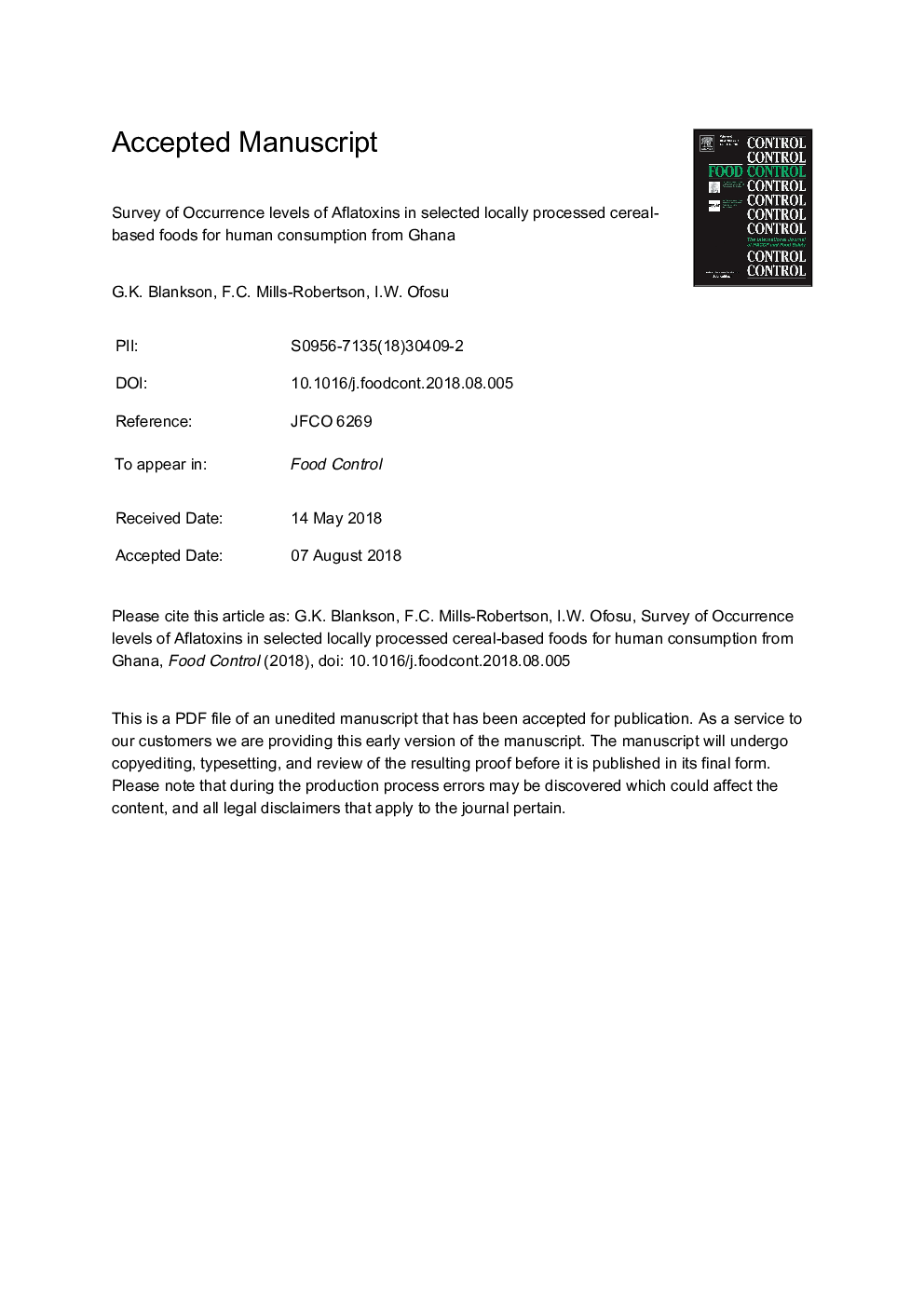| Article ID | Journal | Published Year | Pages | File Type |
|---|---|---|---|---|
| 8887655 | Food Control | 2019 | 21 Pages |
Abstract
Fifty cereal-based products intended for infants and young children were purchased at retail level across Greater Accra Region in Accra Metropolis from June-September 2013. The samples included rice-based, corn-based, wheat-based, oat-based, millet-based, legume-based and mixed grain. Extraction procedure involving solvent mixture of acetonitrile-water followed by immunoaffinity column clean-up step and HPLC with fluorescence detection and post-column derivatization (Kobra cell system) were used. Of the processed cereal-based food samples tested, 72% were contaminated with all four types of Aflatoxin, that is, 0.18-23.27â¯ngâ¯gâ1 for Aflatoxin B1, from 0.08 to 2.62â¯ngâ¯gâ1 for B2, from 0.07 to 6.18â¯ngâ¯gâ1 for G1, and from 0.25 to 3.25â¯ngâ¯gâ1 for G2. Total Aflatoxins (total AF) also ranged from 0.18â¯Â±â¯0.02-25.93â¯Â±â¯0.29â¯Î¼gkg-1. Overall, the mean Aflatoxin values recorded in the rice-based, corn-based, wheat-based, millet-based, legume-based and mixed grain samples were 0.59â¯Â±â¯0.02, 3.58â¯Â±â¯0.02, 3.46â¯Â±â¯0.11, 1.49â¯Â±â¯0.02, 3.29â¯Â±â¯0.12 and 8.29â¯Â±â¯0.13 respectively. The results showed that 96% of the processed foods intended for infants contained AFB1 levels higher than the European Union permissible limits of 0.1â¯Î¼g·kg-1 whilst 52% of the cereal-based foods exceeded the EU maximum limit of 2â¯Î¼g/kg for AFB1 and 4â¯Î¼g/kg for total Aflatoxins.
Related Topics
Life Sciences
Agricultural and Biological Sciences
Food Science
Authors
G.K. Blankson, F.C. Mills-Robertson, I.W. Ofosu,
